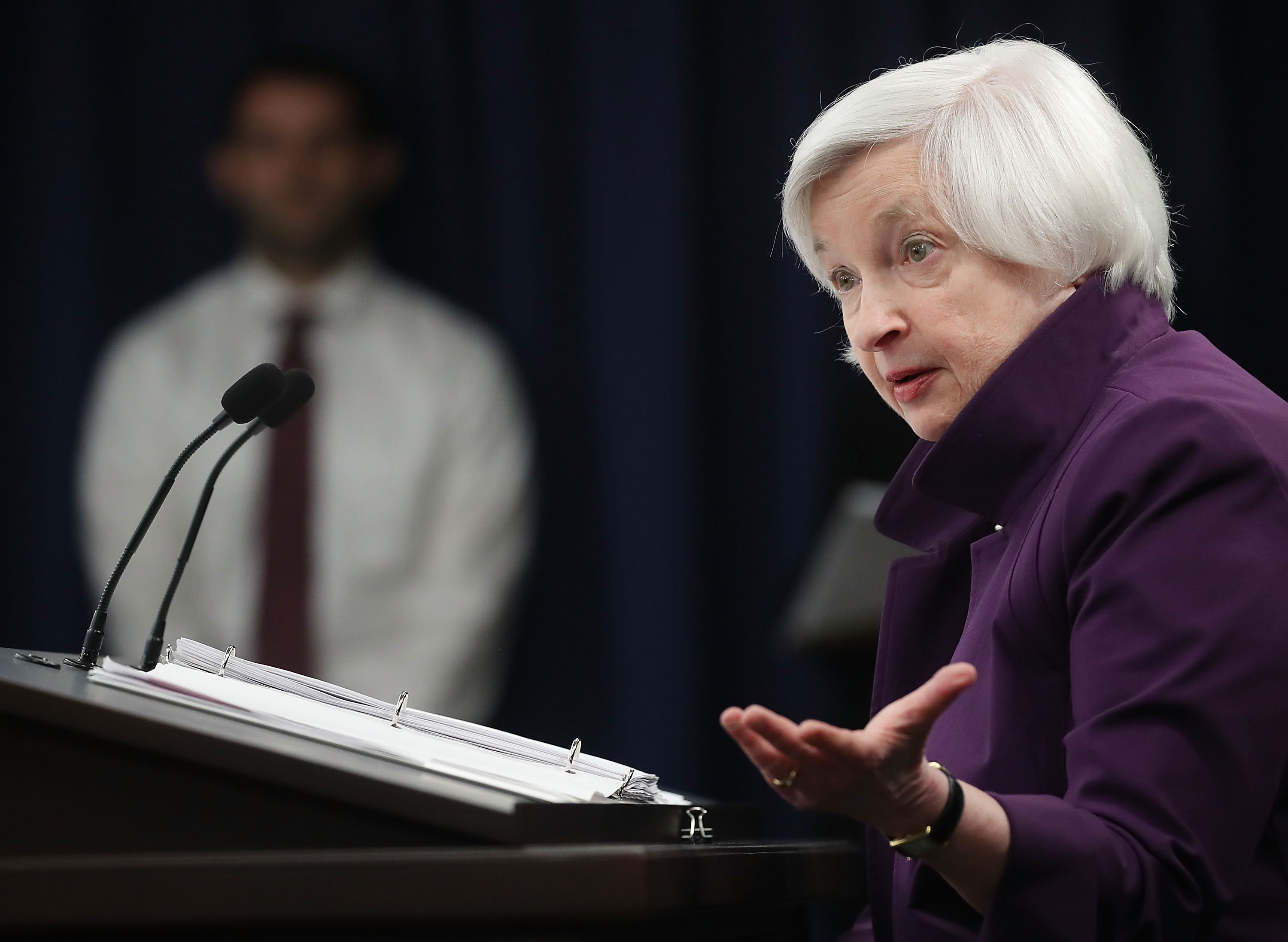The daily business briefing: July 12, 2017
U.S. investors cautious ahead of Yellen testimony, Amazon appears to have notched sales record on Prime Day, and more


A free daily email with the biggest news stories of the day – and the best features from TheWeek.com
You are now subscribed
Your newsletter sign-up was successful
1. Markets cautious ahead of Yellen remarks to Congress
Federal Reserve Chair Janet Yellen is due to start two days of testimony to Congress on Wednesday, potentially giving investors and analysts clues on the U.S. central bank's plans on interest rates. Yellen is expected to indicate that the Fed plans to add more gradual rate hikes to the three it has made since December if the economy continues to show solid job growth, even though inflation has slowed after nearing the Fed's 2 percent target level. U.S. stock market futures were mostly flat early Wednesday in a sign of investor caution ahead of Yellen's remarks, and turmoil in Washington over recent revelations regarding Donald Trump Jr.'s emails about a 2016 meeting with a Russian lawyer, in which he was promised dirt on Hillary Clinton, then his father's Democratic opponent in the race for president.
The Associated Press MarketWatch
2. Amazon appears to have set sales record on Prime Day
Amazon.com said Tuesday that its Prime Day sale appeared to have set a company sales record. The world's largest online retailer said it sold more than three times as many Echo-family speakers than it did last Prime Day, which set the previous record for sales of Amazon devices. By noon Tuesday, third-party sellers had sold over 50 percent more items on the site than they had by the same time last Prime Day. Amazon offered deep discounts on many items, including its popular Echo smart speakers, in an event aimed at luring more subscribers to Amazon's $99-a-year Prime service, which offers free two-day shipping on many items, streaming video, and other perks. Amazon did not immediately release sales figures, but the 30-hour event resulted in more than $500 million in sales last year.
The Week
Escape your echo chamber. Get the facts behind the news, plus analysis from multiple perspectives.

Sign up for The Week's Free Newsletters
From our morning news briefing to a weekly Good News Newsletter, get the best of The Week delivered directly to your inbox.
From our morning news briefing to a weekly Good News Newsletter, get the best of The Week delivered directly to your inbox.
3. Workers strike at three New York-area airports
Hundreds of workers at New York-area airports went on strike Tuesday night in a labor dispute with PrimeFlight Inc., which subcontracts their services to airlines. About 700 people who provide services at curbside and inside the terminals, including wheelchair attendants, skycaps, baggage handlers, cleaners, and shuttle drivers, walked out at New York's JFK and LaGuardia airports, and New Jersey's Newark airport. The workers approved the walkout in a vote earlier this week. The strike could disrupt flights for United Airlines, American Airlines, and JetBlue.
4. Takata recalls another type of airbag inflator
Takata has filed documents with the U.S. government recalling a new type of air bag inflator, adding 2.7 million vehicles to what was already the nation's largest automotive recall. The decision affects mostly Ford vehicles, but also 515,000 2007 to 2012 Nissan Versas, and about 6,000 Mazda B-series trucks made from 2007 through 2009. Takata said that none of the inflators blew apart, as some of the type previously recalled had. Some showed gradual deterioration in the ammonium nitrate propellant "that is understood to predict a future risk of inflator rupture."
A free daily email with the biggest news stories of the day – and the best features from TheWeek.com
5. Snap and Blue Apron fall further below IPO prices
Snap and Blue Apron shares continued to fall on Tuesday, as investors grew increasingly skeptical about two stocks that were expected to be among the year's most successful IPOs. The shares instead have gone into steady downward slides. Blue Apron, which delivers fresh ingredients for home cooks, fell as low as $7.08 on Tuesday after its stock launched at $10 a share on June 28, less than two-thirds of its initial target price. Shares of Snap, the parent of popular messaging app Snapchat, have fallen by 47 percent from the stock's intraday high on the day of its initial public offering. Snap went from its IPO price of $17 to $29.44 at its high point on its first day, but declined in later days and closed at $15.47 on Tuesday. Both companies have sparked concerns over whether their financial health and growth prospects justified their lofty valuations.
Harold Maass is a contributing editor at The Week. He has been writing for The Week since the 2001 debut of the U.S. print edition and served as editor of TheWeek.com when it launched in 2008. Harold started his career as a newspaper reporter in South Florida and Haiti. He has previously worked for a variety of news outlets, including The Miami Herald, ABC News and Fox News, and for several years wrote a daily roundup of financial news for The Week and Yahoo Finance.
